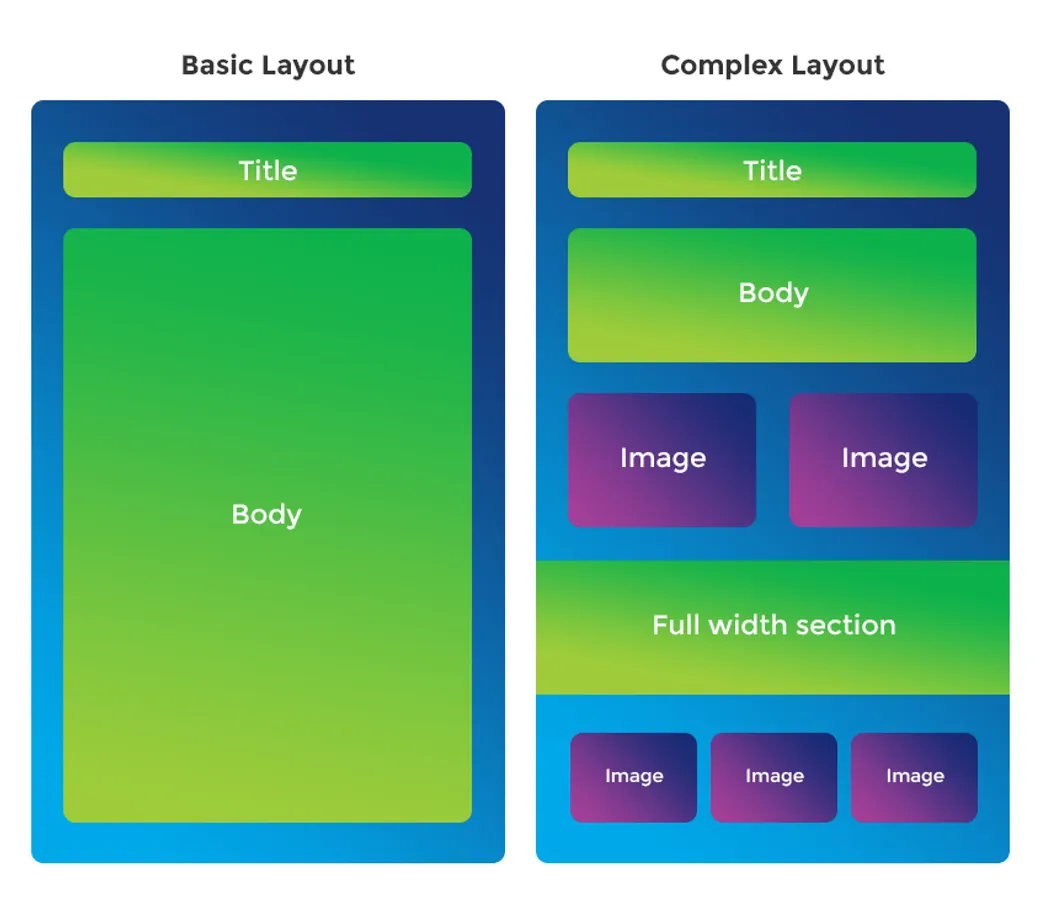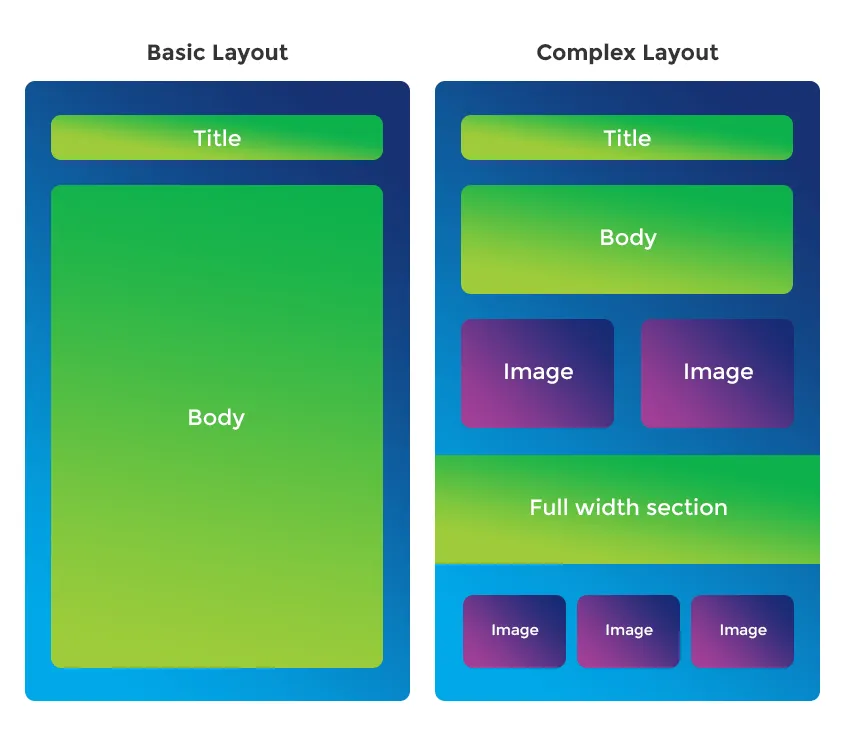
The Pros and Cons of Using WordPress Page Builders
A common issue people run into when using WordPress is it’s extremely basic page editor. The lack of ability to make complex pages, basically anything more than the typical “title” and “body” format, is restrictive. This format is great for simple blog posts, but not-so-great when you need a multi-column layout or multiple full-width sections or pretty much any other complex design.
This problem created an ecosystem of WordPress Page Builder plugins that come in a variety of free and paid versions that will either go as far as replacing the WordPress page editor entirely, or be as minimal as adding extra custom fields to the page editor screen. There are a variety of options, but let’s take a step back and review the pros and cons of page builders in general and then answer the question “should I use a WordPress page builder?”.

The Benefits of Using a Page Builder
More Control over the Design
Giving any writer or editor the ability to add a layer of design to their content is great for providing a visually pleasing site. Something as simple as adding columns to the main content area or as complex as adding full-width parallax sections to break up chunks of content.
Make Design Changes Quickly
Page builders are great for changing the layout of a page quickly and easily which allows you to figure out what will work best with the content that you have without the need for a developer or designer to figure this out for you.
Independence from a Designer or Developer
The problems page builders solve are clear: they give the user extra ability to change the design/layout of the page without needing to touch any code or talk to those crazy designers or developers… awesome!
…so, what’s the catch?
The Down Sides to Using WordPress Page Builders
With Great Power Comes Great Responsibility
When a web developer creates a theme or a template with a specific layout, you can rest assured that it’s been thoroughly tested in various browsers and on multiple devices of all sizes so that it provides a great user experience no matter what the end-user is viewing the website with. This responsibility gets transferred to the content creator when using a Page Builder, which may not be something you want, or even should, spend time doing and is often overlooked.
Extra Bloat
The majority of WordPress Page Builder plugins are pretty mature by now. However, due to the nature of what they are, they are always going to be slower than a page coded for a specific layout and purpose. This is due to the fact that page builders have to accommodate for every single type of layout possible.
A little extra bloat when browsing on a high-powered desktop connected to a fast internet connection doesn’t make a huge difference. BUT, things get noticeably worse on a phone and a slow network. A little bloat is the difference between a user abandoning your site because it took too long to load and a user making a buying decision.
More Complexity Means Greater Cognitive Load
Having a simple and consistent interface is great for getting the main purpose of the task complete in the quickest time possible and provides a smaller barrier to entry for beginners. When adding a layer of complexity, which all page builders do, it increases the barrier for entry and overall cognitive load which can result in decreased productivity.
“The best user experience is the one the user doesn’t notice. It appears smooth and simple on the surface, but hundreds of crucial design decisions have been made to guide, entertain and prevent trouble.”
- an excerpt from Smashing Magazine’s Reducing Cognitive Overload for A Better User Experience by Danny Halarewich
If you are needing to focus solely on creating content, it can help to have a distraction free content editor. When you put a design tool into the content creation process it can hinder the progress made on writing the content and the quality of the content because you’re focused on what looks good rather than the information itself.
The Takeaway
I’ve personally used a bunch of different WordPress themes with page builders built-in as well as separate page builder plugins that integrate with your existing theme and I’m always left with something that’s about 90% complete. That last 10% is always some bug or limitation of the plugin or other quality issue that’s just not possible to fix when using these plugins. With that being said, they truly do have some great benefits that make them extremely useful, especially to non-developers.
I encourage people to use page builders and any and all other tools that help flesh out your ideas to become closer to end products. But, like all good products, it takes multiple iterations to truly make something great. What you make with a page builder is a great prototype or even a first or second iteration, but you’ll eventually need to part ways with it to push yourself through that final 10%.